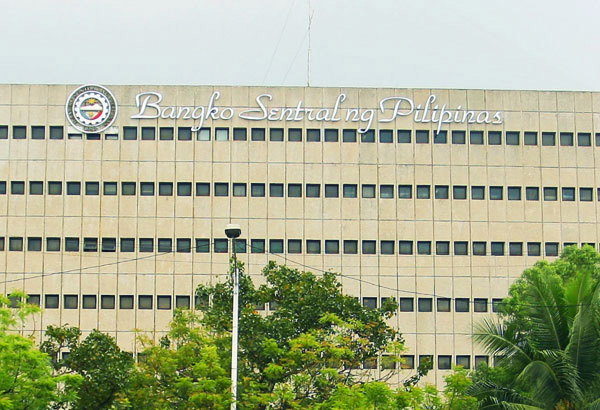BSP removes SBL relief extended to PPPs

The BSP is no longer extending the effectivity of the additional 25 percent single borrowers’ limit (SBL) specifically available to banks and quasi banks as temporary regulatory relief to jump-start financing for PPP projects. File photo
MANILA, Philippines – The Bangko Sentral ng Pilipinas (BSP) has lifted the additional 25 percent lending cap for single borrowers undertaking major infrastructure projects under the public private partnership (PPP) program.
The BSP is no longer extending the effectivity of the additional 25 percent single borrowers’ limit (SBL) specifically available to banks and quasi banks as temporary regulatory relief to jump-start financing for PPP projects.
The relief launched in 2010 for a period of three years and has been extended for another three years is set to expire today. With the lifting of the regulatory relief, the BSP would again restrict each bank’s exposure to a single borrower to only 25 percent of its capital.
“The decision of the Monetary Board to allow the additional SBL window to close takes into consideration the significant systemic risks from credit risk concentration if the regulatory relief is further prolonged. The decision is thus firmly in line with the financial stability objectives of the BSP,” it said.
The additional ceiling was provided to subsidiaries and affiliates of banks to support the financing of productive sectors and projects that form part of the priority programs under the Philippine Development Plan/Public Investment Plan of the previous administration.
The BSP refined its regulatory guidelines to allow companies the flexibility to engage in different PPP-related project finance activities structured as self-contained special purpose entities (SPE).
The BSP clarified SPE would be treated as independent entities subject to its own SBL if the project cash flows are properly ring-fenced despite the fact that it may fall under the definition of an affiliate.
As part of the refinements, the central bank now exempts the loans of banks and quasi banks to its related parties for the purpose of project finance from the 30 percent unsecured individual ceiling during the pre-operational phase of a PPP project.
Furthermore, monetary authorities also considered the entry of new foreign banks into the country providing additional potential funding sources in addition to syndicated loans that may be structured by existing banks.
Loan syndication spreads the credit risk exposure arising from big-ticket projects.
“Furthermore, PPP projects that are already operational can be refinanced through the issuance of project bonds in the domestic capital market to open new long-term funding for infrastructure and other similar projects,” the BSP said.
The BSP has so far given nine foreign banks the green light to establish their presence in the country after the limit on the entry of foreign banks was lifted through Republic Act 10641.
Mulilateral lending agencies including the World Bank, the Asian Development Bank (ADB), the Japan International Cooperation Agency (JICA), and the newly formed Asian Infrastructure Investment Bank (AIIB) could also help fund PPP projects.
The government has awarded 15 projects worth more than P371 billion since the scheme was launched in 2010. Completed projects include the P17.93 billion NAIA expressway phase 2 project, the P9.89 billion PPP for school infrastructure phase 1, the P2.23 billion Muntinlupa-Cavite expressway project and the P1.72 billion automated fare collection system.
PPP projects under construction are the P69.3 billion MRT-7 project, the P37.43 billion Metro Manila Skyway stage 3 project, the P17.52 billion Mactan-Cebu international airport passenger terminal building, and the P3.86 billion PPP for school infrastructure project phase 2.
Projects under pre-construction are the P64.9 billion LRT-1 Cavite extension, the P35.43 billion Cavite-Laguna expressway, the P24.41 billion Bulacan bulk water supply project, the P23.2 billion NLEX-SLEX connector road, the P5.2 billion South integrated transport system project, and the P1.59 billion civil registry system information technology project.
The Duterte administration has identified 17 PPP projects to catch up with the country’s infrastructure backlog. These include the P171 billion South line of the North-South railway project, the P108.2 billion regional airports project, among others.
- Latest
- Trending

























